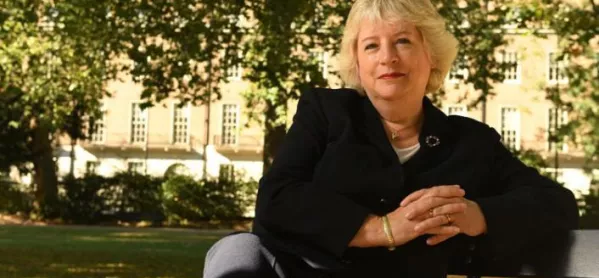The Chartered College of Teaching will be entirely self-sufficient by the end of March next year, despite the fact it is set to miss its membership target by thousands, Tes can exclusively reveal.
The college has written to the Department for Education to say it will not require any further funding after March 2020.
This is despite the fact that the College has attracted just 32,160 members since it was founded in January 2017 - nearly 8,000 short of its four-year target.
Exclusive: School leaders’ role for Chartered College
Investigation: Does Chartered College have a future?
Dame Alison Peacock: Chartered College has to be ‘massive’
Asked if it could reach its 40,000 members by March - an official goal the college insisted it was “on track” to meet less than five months ago - Jen Baxter, chief operating officer, was non-committal
”[It] is above and beyond what we budgeted for,” she said. “It’s still what we would aim for, but we are very aware that it was a hugely aspirational target that was set a long time ago.”
But she also told Tes that the college would soon be self-sufficient. “We have written to the DfE specifying that we are not seeking further grant funding after March 2020 because we are confident in our financial projections,” Ms Baxter. “We are sustainable from April 2020.”
The college was granted £5 million in DfE funding - to run from 2016-17 until 2019-20 - after a troubled birth, which included a failed crowdfunding campaign. To wean itself off the DfE funding, it had to grow its membership as well as diversify its income streams.
This week the college said that it had amassed 32,160 members, of which 73 per cent paid fees. They include 21,544 fee-paying teachers. Of these, 1,700 are newly-qualified teachers, who pay half price fees
This contrasts with the college’s situation in July, when it had just 26,000 members, more than half of which were non-fee paying students.
Today’s membership also includes 1,200 “professional affiliates” - a category for non-teachers available to those who work “alongside teachers and leaders in an early years setting, school, college or higher education institution as well as not for profit organisations”.
A further 667 are “fellows” - a membership category open to teachers with a minimum of 10 years’ experience, which requires nomination.
The college’s remaining 8,749 members are non-fee paying students, representing 27 per cent of the total membership.
The college also said it was about to secure new premises as it will have to leave its existing free-of-charge central London offices in March.
“We’ve always known that we would be in this building for a fixed period of time until we were sustainable,” Ms Baxter said.
“We are sustainable - we will be moving early next year. We are currently in the final stages of discussions so we aren’t able to announce where just yet. It’s in central London, very near to where we are now.”
Dame Alison Peacock, chief executive of the college, said: “We feel as if we are in a very, very positive place. Essentially, we’ve won new contracts; we’ve got a new product which is Chartered Leadership; we are growing chartered teacher status; we are gaining momentum across the country; people are beginning to recognise what we’re doing; they want to write for us, they want to be recognised by the Chartered College; we’re moving premises.
“All kinds of things are happening that are very different from where we were in July. We always knew we were going to be [independent of the DfE] because our grant period was always going to come to an end in March 2020, but we are now in a position where we can look ahead and we can see exactly what that looks like.”




